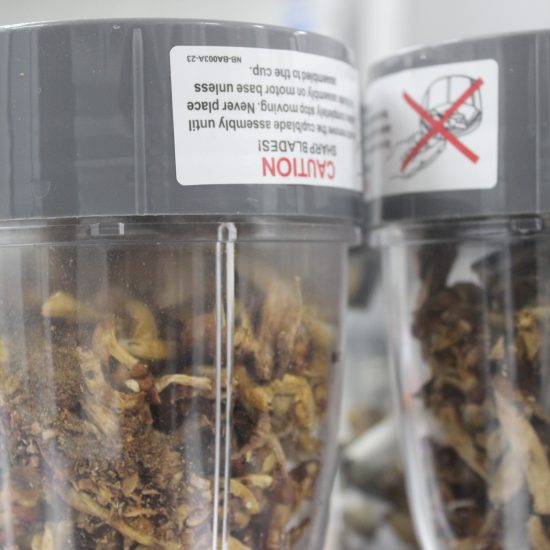
Leah Rosenthal described her early childhood education experience as difficult. She was initially diagnosed with ADHD, and struggled with anxiety and depression.
“School just wasn’t easy for me, with the way that things were taught and how I learn. I definitely got bullied a lot, and I had to stay back a grade. It was super hard for me,” she said.
Her parents pulled her out of public school in fifth grade due to her learning disabilities, and she enrolled in a catch-up program. She excelled in math, and went to college on the east coast, where she received a bachelor’s degree in business. She moved out to Colorado in 2008, but struggled to find employment in her field.
“I worked a ton of different odd jobs, but I felt like I didn’t fit in anywhere,” she said. “I kept on getting fired from jobs, and I was really surprised, because, I was educated. I felt a lot of shame. It was really hard.”
She decided to go back to school for her bachelor’s in nutrition at MSU Denver, but struggled with her classes. Something wasn’t adding up. Then, in 2020, with the help of a therapist and job coach, she got a referral to the Autism Society of Colorado.
“Look, I feel weird, because I have two college degrees, but I was driving for Uber and Lyft and doing grocery store delivery, so it wasn’t making any sense.”
At the age of 40, Rosenthal was officially diagnosed with austism. Of children diagnosed with autism, only 25% are female. However, there is growing evidence that this is due to underdiagnosing and misdiagnosing girls, rather than autism being more common among boys. Autism also looks different in girls because girls are more likely to engage in masking behaviors and fly under the radar throughout adolescence, according to the National Autistic Society.
“I knew I had ADHD, but I didn’t know much about autism,” Rosenthal said. “Once I got my diagnosis, just to be told ‘Nothing’s wrong with you,’ it felt like a lot of shame had been lifted from my shoulders.”
Once she had access to the right resources and met other women on the spectrum, she found her real passion was helping others who were going through similar challenges. Initially a support group attendee, Rosenthal was hired last year as a facilitator. Although there are some younger support group attendees, the women tend to be in their 40s or older, with the oldest woman in her late 70s.
“When you find out you’re autistic when you’re older, it’s just so much harder. A lot of people that get diagnosed later in life have a ton of grief, and wish that they had been able to know what was going on, and to get support sooner,” Rosenthal said. “A lot of them have been in burnout and they don’t know much about their diagnosis. Plus there’s so many resources available to younger people on the spectrum that they never got to take advantage of.”



Since she began facilitating the support groups, Rosenthal noticed that other women in the group were struggling with friendships. This is one of the areas in her life that she found to be the most difficult, too.
“I struggle with friendships a lot. I’ve been here since 2008, and so I’ve made some friends, but a lot of them weren’t on the spectrum. And so that’s why I started Denver Neurodiversity Network. I just wanted to meet other people who are like me, and to feel less alone.”
She also recently launched her own consulting business, called Neurorock.us. She offers one-on-one coaching to other neurodivergent people on executive functioning skills, and acts as an accountability partner to help them reach their goals. Neurorock.us also offers group facilitating, workshops, and speaking engagements available for booking. Rosenthal said what sets her apart from other coaches or personal consultants is her personal experience and credentials including a fellowship from CU Anschutz. Her focus is on women with autism.
“I think the main two things that made me realize I was autistic were friendships and jobs. Those were just such huge areas of hardship for me, so I decided that a typical nine-to-five job is just not what I want to do. It’s nice to meet other people with autism who have had some of the same struggles. I really like talking to people, and sharing my story, and helping others who are going through similar challenges.”
Rosenthal has come a long way in the past three years, but life isn’t without its challenges. In May 2022, she was featured in an NPR Morning Edition piece where she spoke about the challenges she’s faced with dating on the spectrum and in the year since, she still finds dating to be difficult.
“I’m not a big drinker, and so I don’t really feel like going out all the time, and my friends who are neurotypical don’t always get that. The main reason I go out is to try to find a partner and meet other people, but I get so burned out and exhausted.”
In her free time, you can find Rosenthal watching a baseball game, (her favorite team is the Washington Nationals) biking, or hiking the beautiful Colorado trails with her best friend, a golden doodle named Rocky, who is also a certified therapy dog.
“I think it’s hard for people to understand the things that they can’t see,” Rosenthal said, reflecting on her experience living with autism.“It used to be that if people had anxiety, or depression, or autism, or whatever, they wouldn’t speak about it, because it’s kind of taboo, but I think it’s been different after the pandemic. More people are willing to talk about mental health, and disabilities, and get the resources that they need,” she said.







Christine / April 27, 2023
This is such an interesting perspective and enlightening. Thank you for covering autism in this way.
/